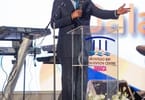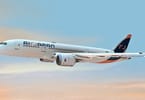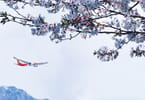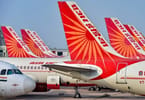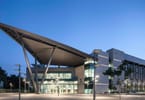Passengers will have to pick up more of the tab, paying more for airline tickets and add-on fees, if the US airline industry is to turn a profit in the face of sky-high fuel costs, according to Gerard Arpey, chairman and chief executive of AMR Corp, American Airlines’ parent.
Mr Arpey told a transportation conference that, while some customers had complained about paying fees for checked bags, more “unbundling” of services was likely so passengers could choose to pay only for services they really wanted.
“The airline industry as it is constituted today was simply not built to function when oil is at $US125 a barrel,” Mr Arpey said at the Merrill Lynch Global Transportation Conference.
“I do not think we necessarily have done a good job in explaining the impact of high oil prices,” he added.
Airline tickets still cost about the same as in 2000, he pointed out, while the cost of crude oil had jumped to more than $US130 per barrel from $US30 a barrel at the dawn of the decade.
Jet fuel on average accounts for about 40 per cent of an airline’s operating cost.
Along with other US carriers, American has said it will cut seat capacity in the northern autumn to eliminate unprofitable flying. Mr Arpey said the world’s biggest airline was evaluating whether it would need to make more cuts in 2009.
“This is not the first time we have had to remake our business in the face of disruptive change,” Mr Arpey said.
Continental Airlines chief executive Larry Kellner told the conference that, whether through regulation or some other means, he was in favour of some changes in the airline industry.
First, he said, the proposed modernisation of the US air traffic control system, which would ease congestion at airports, needed to go forward.
Beyond that, the executive said, the financial turmoil in the airline industry needed to be fixed.
“It is not good for customers, for employees, or for communities to have this volatility,” Mr Kellner said, responding to a question.
The airline industry, which had a spotty history of profitability, needed to have long-term stability, he said.
Earlier this year, a number of US airlines flirted with mergers, believing that consolidation would bring stability to the industry.
Continental backed away from discussions about such a link-up with United Airlines.
Mr Kellner said airline mergers were difficult generally because it was hard to blend employees and fleets of aircraft into a single business.
A huge jump in the price of jet fuel was pushing the industry to a loss this year, so mergers had become even more risky, Mr Kellner said.
theaustralian.news.com.au
WHAT TO TAKE AWAY FROM THIS ARTICLE:
- Airline tickets still cost about the same as in 2000, he pointed out, while the cost of crude oil had jumped to more than $US130 per barrel from $US30 a barrel at the dawn of the decade.
- Passengers will have to pick up more of the tab, paying more for airline tickets and add-on fees, if the US airline industry is to turn a profit in the face of sky-high fuel costs, according to Gerard Arpey, chairman and chief executive of AMR Corp, American Airlines’.
- A huge jump in the price of jet fuel was pushing the industry to a loss this year, so mergers had become even more risky, Mr Kellner said.






